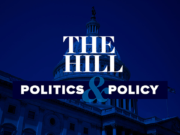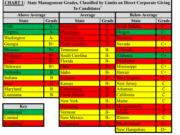It’s fitting the third anniversary of Citizens United v Federal Election Commission falls on inauguration weekend. The case allowed new ways for citizens to participate in campaigns, a fact publicly derided by progressives and reformers yet privately taken advantage of by the candidates they support, including President Obama. Despite the liberal condemnation of the money Citizens United brought to campaigns, the decision has benefited the American voter.
Citizens United allowed corporations – including non-profit corporations – and unions to make independent expenditures in support of, or opposition to, a candidate. An equally important case decided by the U.S. Court of Appeals just weeks later, SpeechNow.org v. Federal Election Commission, held that organizations with a major purpose of making such independent expenditures must register as a political action committee (PAC), but further that it infringed on the right of the free speech to limit the source or size of contributions to such an independent expenditure-only PAC.
In combination, Citizens United and SpeechNow allow for-profit corporations and unions to spend on political activity from their general treasuries, but this is probably the least important part of the opinion, because few corporations do this. More significantly, the cases allow individuals (and corporations and unions) to give as much as they want to a group that exists for the primary purpose of making independent expenditures in support of a candidate or campaign (a “Super PAC”), and they allow non-profit membership organizations, such as the NAACP, Planned Parenthood, the Chamber of Commerce, and the NRA to expend money from their treasuries in support of or opposition to candidates, although such groups would have to register as PACs should this become their primary purpose.
Citizens United had nothing to do with the legal concept of “corporate personhood,” a doctrine that is almost as old as corporations and that has been recognized by the Supreme Court in hundreds of cases (beginning with Dartmouth College v. Woodward in 1819), and in which all members of the Court concurred. And it did not change any of the laws governing disclosure of campaign spending, despite all the hysteria around “dark money” (all political ads include disclosure information about the organization or campaign running the ad; those organizations not required to disclose the names of the persons who gave them money accounted for approximately seven percent of political ads in 2012).
We have now had two elections under Citizens United. In the 2010 midterms, Republicans scored huge gains. In the 2012 presidential cycle, Democrats won solid victories across the board. Both elections were highly competitive, and independent spending permitted by Citizens United and SpeechNow.org added significantly to the competitiveness of a great many House and Senate races. Turnover and enthusiasm were high.
Nevertheless, the political left – and parts of the right – remain exceedingly hostile to the idea of unregulated speech about politics and politicians. Even as they hope for the appointment of new Supreme Court justices who will overturn Citizens United, the left has moved to silence conservative speakers in new ways. For example, in New York, Comptroller Thomas DiNapoli is suing Qualcomm for more information about its contributions to trade groups and other non-profits, with the intent of pressuring the company into withdrawing support from trade groups that fight liberal political initiatives. President Obama’s Securities and Exchange Commission (SEC) is considering new rules to force companies to publicly disclose not only their political spending, but their support for groups and trade associations that oppose parts of the progressive agenda. The goal is to force the information into the public, where the left can organize selective boycotts of their opposition, and the government has information it can use to retaliate and intimidate.
The left also wants the President to step in to end the role of the Federal Election Commission as a bipartisan, if not exactly benign, regulator of political speech. They have long yearned to replace the FEC with a more left partisan organization under their control. Many are now urging the President to make recess appointments to stack the Commission in favor of progressives.
The catchphrase going forward is “disclosure” of donors. But we already have extensive mandatory disclosure of political donors. More information about political donors is available than at any time in history. And this disclosure is not without a cost. Already we have seen persons who financially supported groups opposed to same sex marriage publicly harassed and hounded from their jobs. Protestors attempt to disrupt private meetings, and the President has personally vilified those who have financially opposed his initiatives. The irony is that even as President Obama demands more disclosure of donations to conservative causes out of one side of his mouth, we learn that his top aids and advisors have established a 501(c)(4) intended to raise money to support the President’s agenda going forward. The organization will not, it seems, disclose its donors. Why not? Because for all his attacks on “dark money,” the President and his men also know that compelled disclosure can violate important civil liberties.
But at the FEC, the SEC, and in Congress we see that the left hopes to chase conservatives out of the political marketplace of ideas, by making it too costly for conservatives to exercise the rights guaranteed by Citizens United. Unprecedented new levels of disclosure, followed by harassment and vilification of those whose donations are forcibly disclosed, is the weapon of choice. Ironically, constitutionally recognized protection against excessive compulsory disclosure of political participation, speech, and funding is, to a substantial extent, a legacy of the civil rights era, when the NAACP and other organizations fought the state’s efforts to force public disclosure of their supporters.
Ironic, because Monday is not only inauguration day. It is also Martin Luther King day. As the country celebrates Monday, here’s hoping they remember that the day also celebrates the life and memory of a champion of free speech. Allowing people to organize and speak freely is as important today as it was during Martin Luther King’s lifetime.














